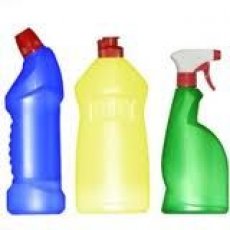Medical expert of the article
New publications
Household chemicals reduce the effectiveness of vaccinations
Last reviewed: 01.07.2025

All iLive content is medically reviewed or fact checked to ensure as much factual accuracy as possible.
We have strict sourcing guidelines and only link to reputable media sites, academic research institutions and, whenever possible, medically peer reviewed studies. Note that the numbers in parentheses ([1], [2], etc.) are clickable links to these studies.
If you feel that any of our content is inaccurate, out-of-date, or otherwise questionable, please select it and press Ctrl + Enter.

A group of American pediatricians from the Harvard School of Public Health in Boston published the results of a study in the Journal of the American Medical Association, which revealed a direct proportional relationship between the concentration of perfluorinated compounds in the body of seven-year-old children and the immune response to vaccination against diphtheria and tetanus, MSNBC reports.
The study's authors believe that perfluorinated compounds reduce the effectiveness of vaccination.
Children who had high levels of perfluorinated compounds had lower levels of diphtheria and tetanus antibodies in their blood.
Philippe Grandjean and colleagues studied 587 children living on the Faroe Islands in the North Atlantic Ocean between Scotland and Iceland. The islands were chosen because a large portion of their diet consists of seafood, which accumulates perfluorinated compounds.
By measuring levels of perfluorinated compounds in the blood of five-year-olds, the scientists also tested the immune response to diphtheria and tetanus vaccination in children aged five to seven. All of the children studied had received a booster shot at age five.
Seven-year-olds with twice the average levels of perfluorinated compounds had 49 percent fewer antibodies in their blood.
Scientists estimate that the risk of developing diphtheria and tetanus in children with the highest levels of perfluorinated compounds is four times higher: Their antibody levels are so low that they cannot protect against infection.
Perfluorinated compounds are a group of fluorinated organic substances that have a wide range of applications. They are found in home textiles, non-stick cookware coatings, grease-repellent packaging for microwave popcorn, bags for grilled chicken, cosmetics, stain removers, and much more.
The half-life of perfluorinated compounds in the human body ranges from 4 to 8 years or more.


 [
[